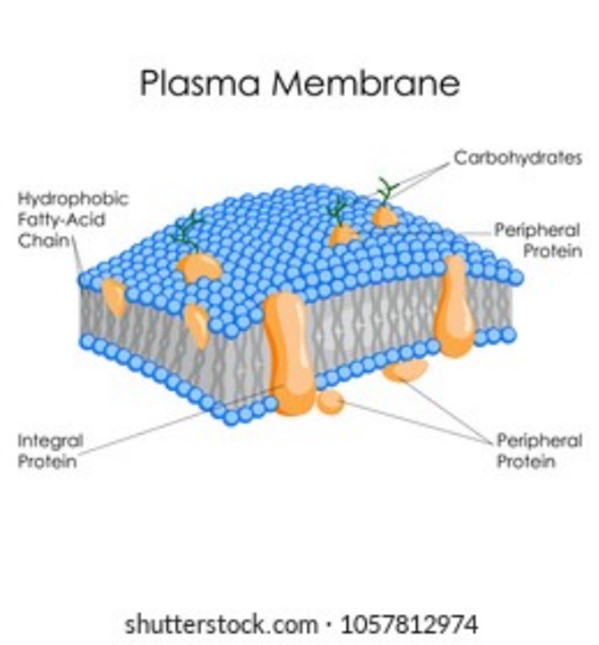What is the organelle that encapsulates the contents of the cell and plays a vital role in regulating the movement of substances in and out of the cell?
Ribosome.
Nucleus.
Mitochondria.
Plasma membrane.
The Correct Answer is D
The plasma membrane is the organelle that encapsulates the contents of the cell and plays a vital role in regulating the movement of substances in and out of the cell.
It is a selectively permeable barrier that separates the internal environment of the cell from the external environment.

Choice A is incorrect because ribosomes are organelles involved in protein synthesis, not in regulating the movement of substances in and out of the cell.
Choice B is incorrect because the nucleus is an organelle that contains the cell’s genetic material, not in regulating the movement of substances in and out of the cell.
Choice C is incorrect because mitochondria are organelles involved in energy production, not in regulating the movement of substances in and out of the cell.
Nursing Test Bank
Naxlex Comprehensive Predictor Exams
Related Questions
Correct Answer is A
Explanation
These are the four nucleotide bases found in DNA1.
Choice B) Adenine, Thymidine, Cytidine, Guanine is incorrect because Thymidine and Cytidine are not nucleotide bases found in DNA.
Choice C) Adenosine, Thymine, Cytosine, Guanosine is incorrect because Adenosine and Guanosine are not nucleotide bases found in DNA.
Choice D) Adenosine, Thymidine, Cytidine, Guanosine is incorrect because Adenosine, Thymidine and Cytidine are not nucleotide bases found in DNA.
Correct Answer is A
Explanation
The terminal velocity of an object falling through a fluid is affected by several factors, including its mass and shape.
Objects with large surface areas will often experience a large amount of air resistance when they move.
Choice B is incorrect because the volume of the object does not affect its terminal velocity.
Choice C is incorrect because the acceleration and momentum of the object do not affect its terminal velocity.
Choice D is incorrect because the height and distance of the fall do not affect the terminal velocity of a falling object.
Whether you are a student looking to ace your exams or a practicing nurse seeking to enhance your expertise , our nursing education contents will empower you with the confidence and competence to make a difference in the lives of patients and become a respected leader in the healthcare field.
Visit Naxlex, invest in your future and unlock endless possibilities with our unparalleled nursing education contents today
Report Wrong Answer on the Current Question
Do you disagree with the answer? If yes, what is your expected answer? Explain.
Kindly be descriptive with the issue you are facing.
